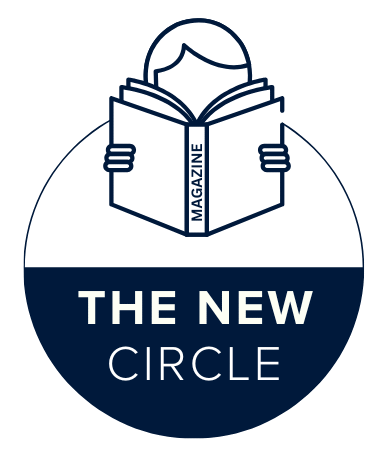Let’s be honest, when someone mentions AI in business, half the room gets excited about robots taking over, and the other half starts updating their resumes. But here’s the thing—the real impact of AI in business isn’t what most people think it is. It’s much more diverse, interesting, and honestly? Way more human than you’d expect.
Last week, I was grabbing coffee with a friend who runs a logistics company. He laughed when I asked about his new AI system. “You know what the biggest change was?” he said. “My team actually goes home on time now.” That’s not exactly the robot apocalypse we were promised, is it? But that’s the reality of working with AI development companies today—they’re less about replacing humans and more about empowering them.
Why AI Development Companies Have Become Everyone’s Favorite Consultants
Here’s a weird truth: AI development companies sit down with you, figure out what’s keeping you up at night, and then prescribe some technical solution that somehow makes sense. With their instant outputs, you’re straightaway discussing inventory nightmares and customer complaints.
I remember when my neighbor’s bakery started using AI for ordering supplies. She thought she needed some fancy million-dollar system. Turns out? A simple AI tool now predicts how many croissants she’ll sell based on weather, local events, and even social media trends. It costs her less than her monthly coffee budget. The kicker? She discovered this through a small AI firm that actually listened to her problems instead of pushing the latest tech buzzwords.
And that’s what good AI partners do—they translate the tech gibberish into something that makes sense for YOUR business. Not some theoretical business in a textbook.
Where This Stuff Actually Works?
Everyone talks about AI in tech companies and banks. Boring. You know where AI is actually killing it? Places you’d never expect.
There’s a plumber in Detroit using AI to schedule appointments. A flower shop in Portland is predicting wedding trends. A gym in Miami that uses AI to figure out when people are most likely to quit their memberships (and then prevents it). These aren’t Silicon Valley startups with ping pong tables and kombucha on tap. These are regular businesses run by regular people who figured out that AI isn’t just for the big guys anymore.
Manufacturing? Sure, they’re using AI to predict when machines will break. But the cool part isn’t the prediction—it’s that maintenance, it now feels like fortune tellers. “Called it!” has become the most common phrase on factory floors. Healthcare is using AI to spot patterns in patient data, but doctors aren’t being replaced. They’re just getting really, really good at catching things early.
Marketing teams are creating campaigns that adjust themselves based on who’s looking. It’s like having a salesperson who shapeshifts for every customer. Effective? You bet.
The Stuff That Goes Wrong
I’m not going to pretend that implementing AI is all sunshine and rainbows. Here’s what you should stay cautious about:
- The cost reality check – You know that feeling when you buy a new phone and spend three days trying to make it work like your old one? Multiply that by about a hundred. That’s AI implementation on a bad day. One company I know budgeted three months for implementation, took them nine, and that was considered a success story.
- The trust apocalypse – Customers worry their data is being sold to the highest bidder. Your IT department? They’re having a small breakdown because nothing integrates with each others. I’ve literally seen grown executives nearly cry over integration problems.
- The privacy and ethics nightmare – Now, you’re dealing with data that knows more about your customers than their best friends do. It comes with about a million regulations that seem to change every time you refresh your browser. GDPR, CCPA, and other regulations. One wrong move and you’re the company everyone’s mad at on Twitter.
- The expectations vs. reality slap – Everyone expects AI to work like it does in movies. Instant results, perfect accuracy, maybe a cool hologram. Reality? It needs training, makes mistakes, and definitely, more.
But here’s the secret—every company that’s crushing it with AI went through this same mess. They just don’t put it in their press releases.
People Still Matter (More Than Ever, Actually)
This might sound backward, but artificial intelligence has made human skills more valuable, not less. When machines handle the boring stuff, humans get to be… more human.
I know a customer service team that used to spend 80% of their time answering “Where’s my order?” Now? AI handles that. The humans? They’re solving actual problems, having real conversations, and being creative. One rep told me she finally feels like she’s helping people instead of just reading scripts. That’s powerful.
The accounting department at another company I visited? They used to be the “spreadsheet people.” Now AI does the spreadsheets. The accountants? They’re strategic advisors. They’re in meetings discussing growth strategies, not hiding in cubicles crunching numbers. They actually like their jobs now. Imagine that.
Even in sales, where you’d think AI would make things robotic, the opposite happened. Salespeople armed with AI insights are having better, more personal conversations. They know what customers need before the call. It’s like being psychic, but legal.
What’s Coming Next?
The future everyone’s predicting? Parts of it are already happening. Small businesses are using the same AI tools that Amazon uses. Your local restaurant might have better demand prediction than some Fortune 500 companies had five years ago.
We’re heading toward AI that doesn’t just react—it anticipates. Systems that fix problems before you know they exist. Marketing that feels less like advertising and more like mind reading (in a non-creepy way, hopefully). Supply chains that adjust themselves based on tweets about weather patterns in three countries away.
You May Also Read: Security & Compliance in U.S. POS Development: Designing for PCI & Data Protection

